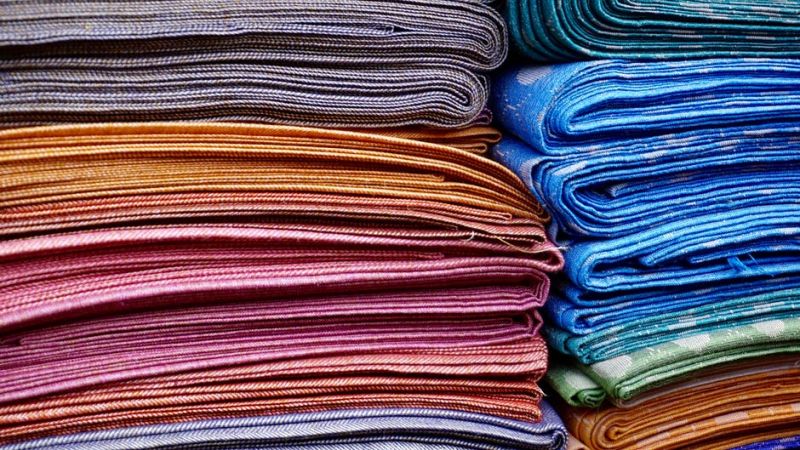Sympatex New Sustainable Spun-dyed Process Saves 75% Water
Published on by Water Network Research, Official research team of The Water Network in Technology
In addition to saving water by relying on the Sympatex 100 percent polyether/polyester membrane, as opposed to using commercially-available PTFE membranes, spun-dyed processes reduce the amount of water needed by roughly 75 percent on average.

Representative Image Source: Pexels, labeled for reuse
According to estimates from the World Bank, dye processes used by the textile industry account for around 20 percent of the world’s industrial water contamination. This is despite the fact that polyester dye technologies which conserve significantly more water than traditional dye processes, while massively reducing the use of chemicals, have been available for some time. Sympatex Technologies, the current pioneer in the field of sustainable functional textiles, will present a new line of spun-dyed laminates at the Performance Days trade fair in Munich on November 28 and 29 (exhibit booth C11). Thanks to the non-PTFE and non-PFC based, 100 percent recyclable Sympatex membranes, the monofraction laminates are ideal for closed textile loops and can be easily reused at the end of their product life cycle.
These apparel innovations from Sympatex, made with fully-recyclable textile surface materials, combine the advantages of both raw material recycling processes and the spun-dyed technology. With this dye technology, water consumption can be reduced by around 75 percent, while decreasing the use of chemicals by as much as 90 percent. In combination with the 100 percent polyether/polyester Sympatex membrane, which uses 50 percent less water during the manufacturing process than a commercially-available PTFE membrane, there is no need to sacrifice performance. The articles, which are ideally-suited for outdoor and ski applications, and even for the fashion world, are 100 percent water- and wind-proof, in addition to optimally breathable, thus offering further proof that it’s possible to combine sustainability and performance in a single product.
With this spun-dyed technology, instead of adding the dye to the finished textile product, it’s mixed into the raw material granulate. This not only improves the penetration intensity of the dye in the thread. The process also offers significant advantages with respect to color harmony and the reproducibility of the hue.
“The only prerequisite for the extensive use of this dye technology is close collaboration between all of the participants during the design process, since the color selection has to be mutually agreed upon at an earlier timeframe,” explains Dr. Rüdiger Fox, CEO at Sympatex Technologies. “Given the acute environmental issues created by our industry in the manufacturing countries, plus the enormous ecological benefits that spun-dyed technologies bring, this should be an acceptable concession for all of those involved,” adds Fox.
Source: Sympatex
Media
Taxonomy
- Polymeric Membranes
- Water Recycling
- Polymers & Plastics
- Fashion & Clothing
- Environment
- Social Responsibility
- Product Safety
- Recycling
- Consumer Goods Other
- Recycling
- Design & Disposal
- Recycling Services
- Textile Machinery
- Textile
- Nanotextiles
- Polymer Membranes
- Packaged Water Treatment System
- Wastewater engineering